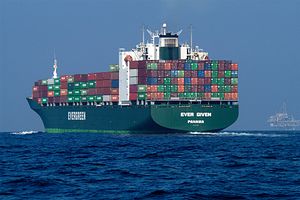Two weeks after U.S. President Donald Trump was inaugurated, promising to pursue an “America First” approach to the United States’ economic relations with the world, China may finally be coming around to the reality that it’ll have to talk to the United States about trade concerns.
So far, China has avoided directly addressing Donald Trump’s repeated accusations that Beijing is deliberately weakening its currency to benefit its exporters (it is, in fact, doing the opposite, fearing capital flight) and engaging in manipulative trade practices. The latter accusation isn’t entirely new to Trump; for instance, the Obama administration’s U.S. trade representative criticized China for a range of protectionist practices in the 2016 U.S. National Trade Estimate report.
China’s go-to messaging when asked about the Trump administration’s comments on trade so far has been to emphasize “win-win” possibilities. For instance, in the first press conference following Trump’s inauguration, Chinese Foreign Ministry spokesperson Hua Chunying cautioned that trade was “mutually beneficial in nature,” and that “trade wars or confrontation will produce no winner, but only harm the interests of both and all parties.”
This language echoed Chinese President Xi Jinping’s own defense of trade between nations at the World Economic Forum meeting in Davos, Switzerland. There, Xi had said that “No one will emerge as a winner in a trade war.” Xi, of course, did not acknowledge any of the common criticisms of Chinese trade practices directly.
On Friday, in the first press conference after the Chinese Lunar New Year break, we may have seen the first sign that China is open to talking with the United States about trade. When asked about contacts between the United States and China in the Trump administration’s first two weeks in office, Chinese Foreign Ministry spokesperson Lu Kang noted that “that China and the U.S. are in close contact right now.” He went on to mention that “the differences that China and the U.S. are experiencing in trade can be resolved through friendly consultations.”
This last statement represents the first hint by any Chinese official that Beijing will entertain the idea of one-on-one talks with the Trump administration on trade. During the transition, Chinese officials had not commented on how they would address the new U.S. administration’s deep skepticism of China. Though China uses the term “friendly consultations” to interchangeably refer to both high-level and low-level diplomatic contact — the term was a go-to for China’s preferred bilateral diplomatic approach on the South China Sea disputes, for example — Lu’s comment on Friday appears to be the first sign that we can expect some form of bilateral exchange between China and the United States.
A more credible signal would be a statement from a senior official on the Chinese State Council, which ultimately exercises authority over the implementation of Chinese economic policy. If talks on this issue are to proceed between the United States and China this year before China’s 19th Party Congress, which is expected to result in important changes in leadership in Beijing, expect to see State Councilor Yang Jiechi and Premier Li Keqiang involved down the line.

































